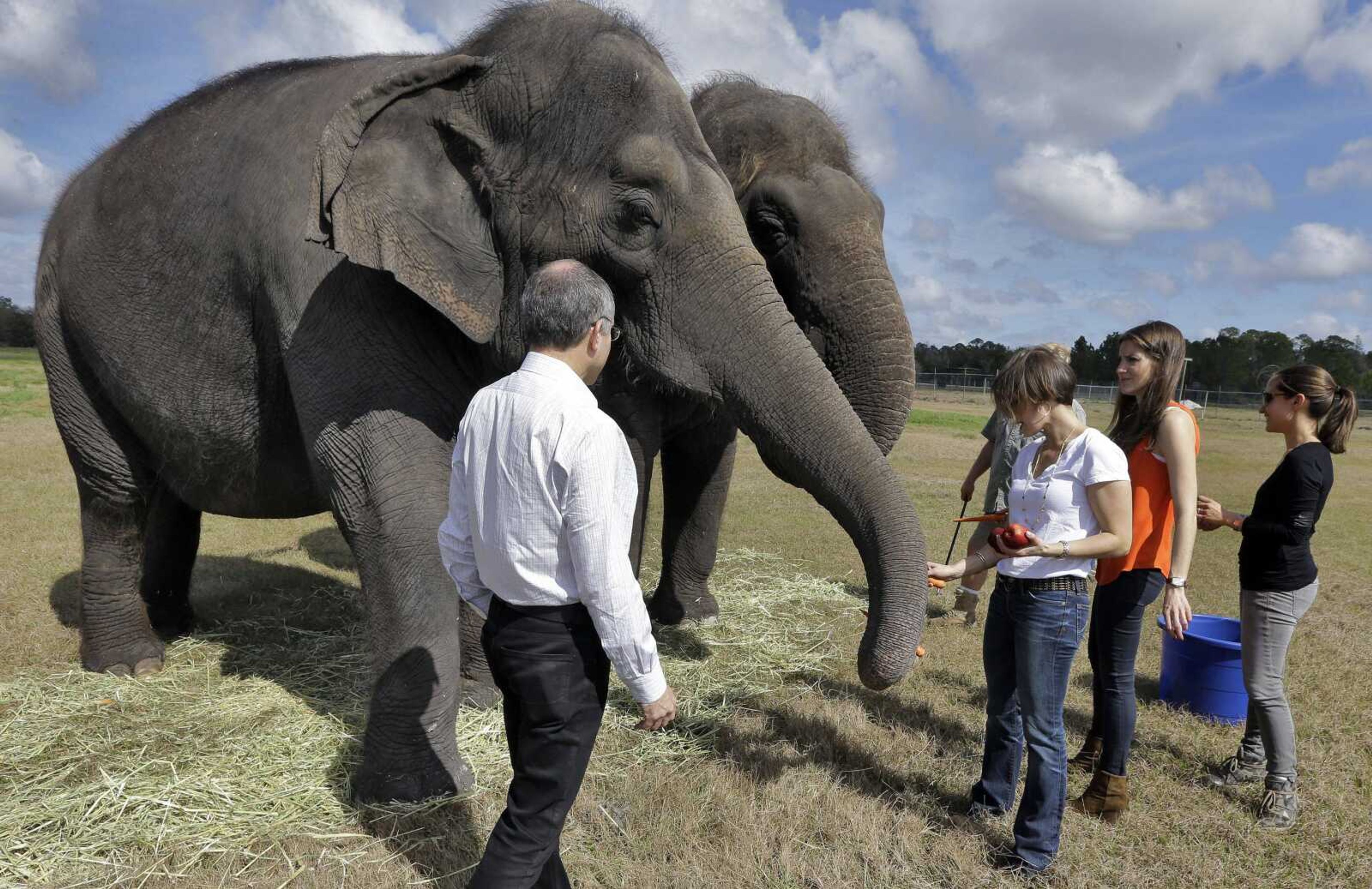Ringling Bros. to give up elephant acts in 3 years
POLK CITY, Fla. -- The Ringling Bros. and Barnum & Bailey Circus says the "Greatest Show on Earth" will go on without elephants. Animal-rights groups took credit for generating the public concern that forced the company to announce its pachyderm retirement plan Thursday. But Ringling Bros.' owners described it as the bittersweet result of years of internal family discussions...
POLK CITY, Fla. -- The Ringling Bros. and Barnum & Bailey Circus says the "Greatest Show on Earth" will go on without elephants.
Animal-rights groups took credit for generating the public concern that forced the company to announce its pachyderm retirement plan Thursday. But Ringling Bros.' owners described it as the bittersweet result of years of internal family discussions.
"It was a decision 145 years in the making," said Juliette Feld, referring to P.T. Barnum's introduction of animals to his "traveling menagerie" in 1870. Elephants have symbolized this circus since Barnum brought an Asian elephant named Jumbo to the United States in 1882.
Kenneth Feld -- whose father bought the circus in 1967 and who now runs Feld Enterprises Inc. with his three daughters -- insisted animal-rights activists weren't responsible.
"We're not reacting to our critics; we're creating the greatest resource for the preservation of the Asian elephant," Kenneth Feld said as he broke the news the last 13 performing elephants will retire by 2018, joining 29 other pachyderms at the company's 200-acre Center for Elephant Conservation in central Florida.
But Feld acknowledged because so many cities and counties have passed "anti-circus" and "anti-elephant" ordinances, it's difficult to organize tours of three traveling circuses to 115 cities each year. Fighting legislation in each jurisdiction is expensive, he said.
"All of the resources used to fight these things can be put toward the elephants," Feld said.
Los Angeles prohibited the use of bullhooks by elephant trainers and handlers last April.
Oakland, California, did likewise in December, banning the devices used to keep elephants under control. Last month, the city of Asheville, North Carolina, nixed wild or exotic animals from performing in the municipally owned, 7,600-seat U.S. Cellular Center.
"There's been somewhat of a mood shift among our consumers," said Alana Feld, the company's executive vice president. "A lot of people aren't comfortable with us touring with our elephants."
Carol Bradley, the author of the book "Last Chain on Billie: How One Extraordinary Elephant Escaped the Big Top," which is about a non-Ringling circus elephant, said she believes the Feld family "realized it was a losing PR battle."
"This is an enormous, earth-moving decision," she said. "When I heard the news, my jaw hit the floor. I never thought they'd change their minds about this."
Connect with the Southeast Missourian Newsroom:
For corrections to this story or other insights for the editor, click here. To submit a letter to the editor, click here. To learn about the Southeast Missourian’s AI Policy, click here.








